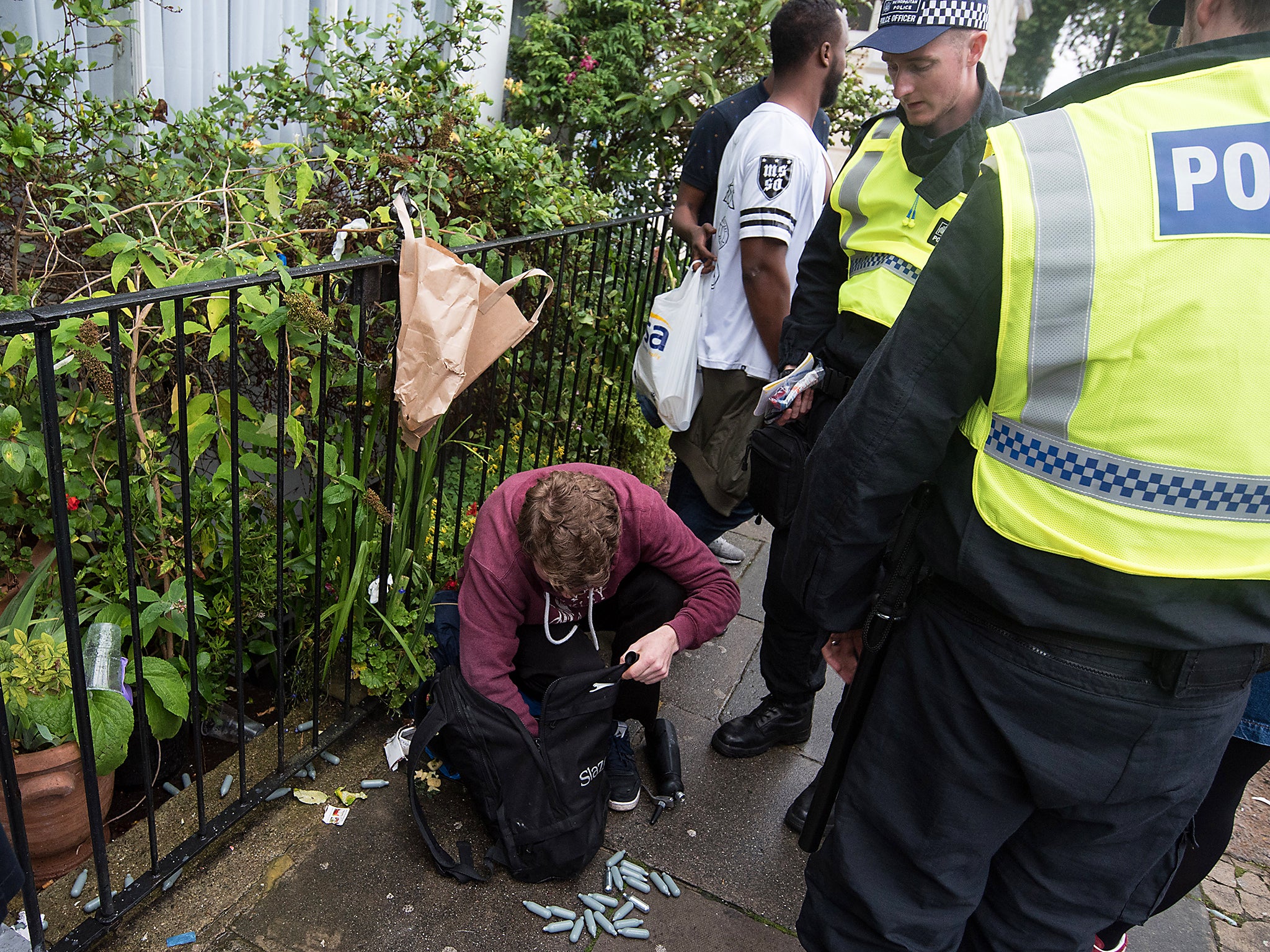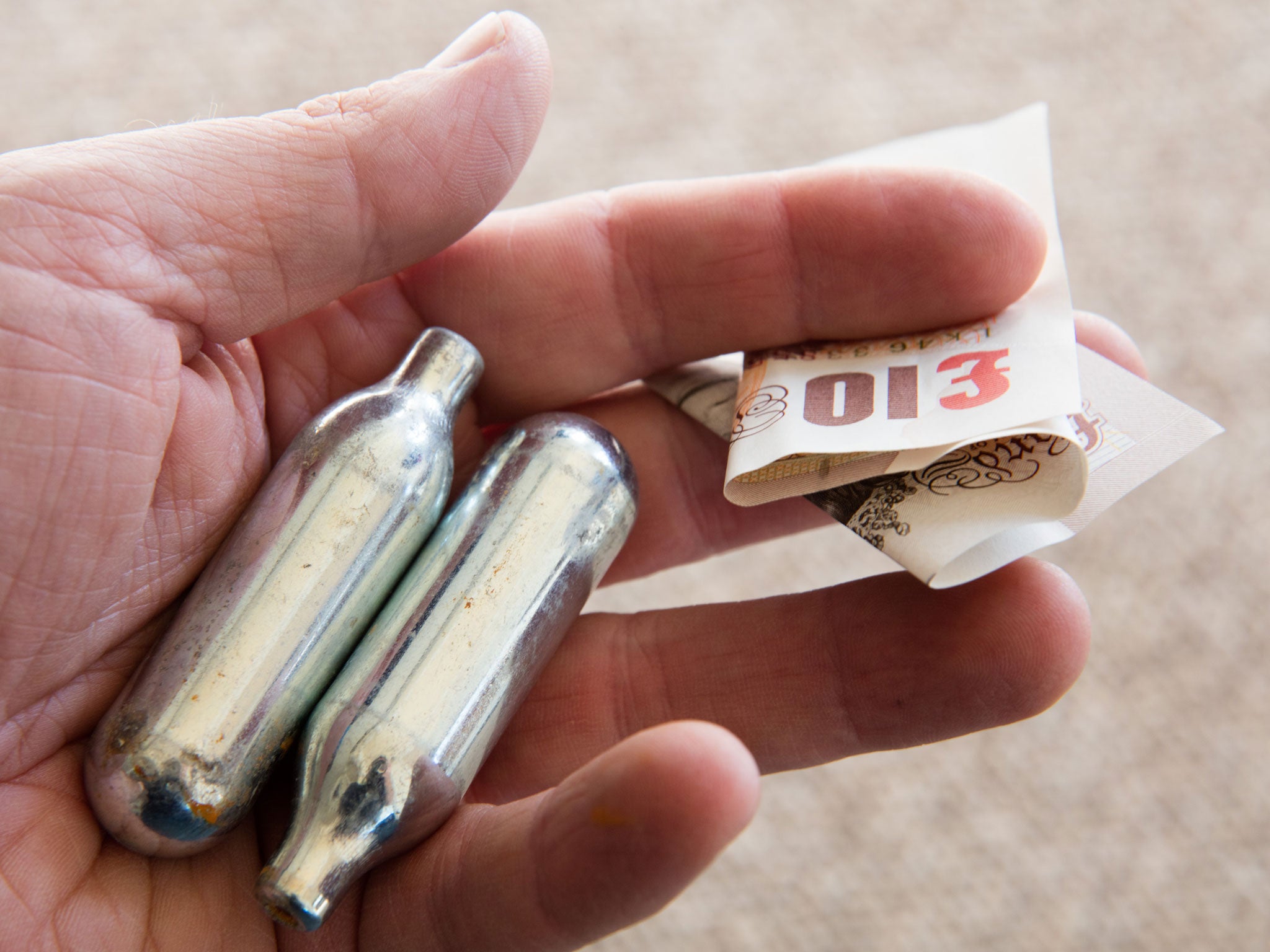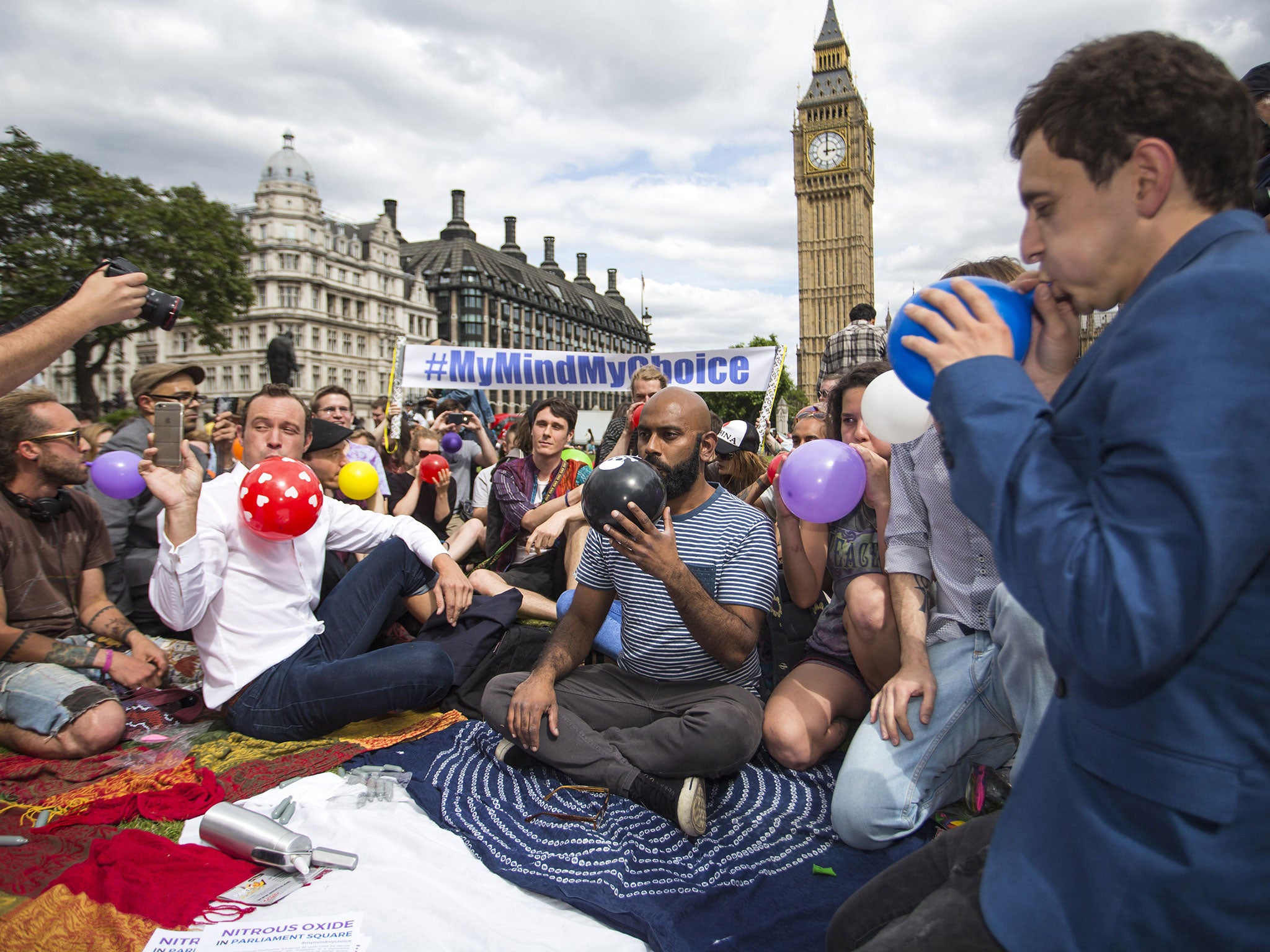Police vow to continue arrests for laughing gas despite court ruling
Home Office says nitrous oxide is covered by the law but two judges found it to be exempt

Police have vowed to continue arresting people for supplying laughing gas despite the collapse of the first contested court cases under a new law.
Charities and legal experts have called on prosecutions to be suspended after three people accused of trying to sell nitrous oxide at music festivals walked free.
The Crown Prosecution Service (CPS) is reviewing the potential impact of the hearings in London and Somerset, where a judge and the Government’s own expert witness found that nitrous oxide was exempt from the law.
But police forces questioned by The Independent have said they will continue arresting and pursuing suspects unless new guidelines are released, while the Home Office insists laughing gas is still illegal.
A spokesperson for the Metropolitan Police said it would not be “pre-judging” the CPS’ conclusions and will continue arrests until any change is made.
Greater Manchester Police also confirmed they had no plans to update guidance for officers, as did Kent Police and several other forces, with Police Scotland adding: “We do not make the law and we are not in a position to comment on it.”
West Yorkshire Police is the only force so far confirm it is considering any change.
“We are aware of the cases in other parts of the country and are reviewing our current position,” a spokesperson said.

Arrests have been enabled by the Psychoactive Substances Act, which came into effect in May last year.
It aimed to ban drugs previously known as “legal highs” but critics have labelled it “unworkable” over a contested definition for psychoactive substances.
The Act contains an exemption for “medicinal products”, which was taken by the two courts to apply to laughing gas.
The substance is used as an anaesthetic for some medical treatment, as well as in catering, including inside whipped cream cans or in food packaging to prevent the food from rotting.
But when inhaled it can produce feelings of euphoria and relaxation, dizziness, uncontrollable fits of laughing and hallucinations.
As well as the risk of users being endangered by reckless behaviour, nitrous oxide can cause unconsciousness or death from a lack of oxygen, as well as a form of anaemia, vitamin B deficiency and nerve damage.
The deaths of at least 22 people have been linked to laughing gas in the UK since 1994 and the mother of a student who died after taking the drug in Brighton was among those campaigning for legal changes.
“Some people get harmed, some people die. I know many people that have lost people over this,” Maryon Stewart told the Evening Standard.
“It was something that I clearly felt couldn’t continue, it was something that people needed to understand that children had been duped.”

Two men accused of possessing nitrous oxide with intent to supply at Glastonbury Festival saw the case dismissed during a hearing on 25 August, after a judge at Taunton Crown Court concluded it “plainly is an exempted substance“.
Four days later, the trial of a man accused of intending to sell the substance at another music festival was thrown out of Southwark Crown Court.
A prosecutor told the court that the Crown's own expert witness – an Oxford psychopharmacology professor – had expressed “the firm view that nitrous oxide, as the legislation is currently worded, is an exempt substance”.
A spokesperson for the CPS said the cases had been charged in accordance with the Code for Crown Prosecutors and that any review of existing law was a matter for the Home Office.
But as the CPS only takes prosecutions forward if there is “sufficient evidence to provide a realistic prospect of conviction”, the collapsed cases could have an impact on its future decisions.
Release, a charity that provides legal advice to people charged with drugs possession, is among the groups calling for current cases to be halted and convictions to be urgently reviewed.
Kirstie Douse, its head of legal services, said that while the two court cases did not set a legal precedent, they could have a “general application” for all laughing gas prosecutions.
“At the very least there should be a full review of the law, with all arrests and prosecutions suspended whilst this is carried out,” the solicitor told The Independent.
“For the CPS to continue on regardless, ignoring the interpretations of judges and professors is irresponsible, though perhaps unsurprising given the Government’s history with disregarding expert evidence in relation to drug policy.
“Release believe there is potential for previous convictions to be overturned, and complaints around any arrests and prosecutions that happen following these decisions.”
Rudi Fortson QC, a professor at Queen Mary University of London who specialises in drug law and gave evidence to a parliamentary inquiry into new psychoactive substances, said it would be “absurd” to label all nitrous oxide a medicinal product.
“Neither case is a precedent that decides a legal principle so the cases are very specific depending on the facts,” he told The Independent.
“Maybe the answer is for Parliament to make some adjustment, or further guidelines to be issued by the Medicines and Healthcare Products Regulatory Agency (MHRA), but what constitutes a medical product is a question for the courts to answer as and when the issue arises.”
Mr Fortson said the definition of a “medical product” using laughing gas should depend on the circumstances and that it would take time for jurisprudence to build up around the new law.
“There’s no doubt that laughing gas appears to be widely used, so the success of the Act depends on the definition of success,” he added.
“This is a piece of legislation designed to deal with a particular problem of retail outlets selling drugs on open market when nothing was known about them.
“It’s too early to say whether these two cases represent a knock-out blow to the legislation.”

Campaigners and experts have argued that the definition of controlled substances as “capable of producing a psychoactive effect” was too broad, given the absence of scientific evidence and human trials using targeted drugs like the synthetic cannabis substitute Spice and ecstasy-like mephedrone.
Tom Brake, a Liberal Democrat MP, said a blanket ban had always been “unworkable”, adding: “This latest failure reeks of government incompetence.
“They have brought forward a law that is both unnecessary and undeliverable.
“It is time the Government started to look at the evidence. We must follow what works, not ham-fistedly force through draconian laws.”
More than 300 retailers in the UK have been shut down or forced to stop selling drugs formally known as “legal highs” since the Psychoactive Substances Act came into force, while suppliers have been arrested by police and the National Crime Agency has targeted online sales.
A spokesman for the Home Office said it would not be reviewing the legislation in light of the two court cases.
“Nitrous oxide is covered by the Psychoactive Substances Act and is illegal to supply for its psychoactive effect,” he added.
“However, the Act provides an exemption for medical products. Whether a substance is covered by this exemption is ultimately one for a court to determine based on the circumstances of each individual case.
“These dangerous drugs have already cost far too many lives and the Psychoactive Substances Act is sending out a clear message – this Government will take whatever action is necessary to keep our families and communities safe.”
Bookmark popover
Removed from bookmarks